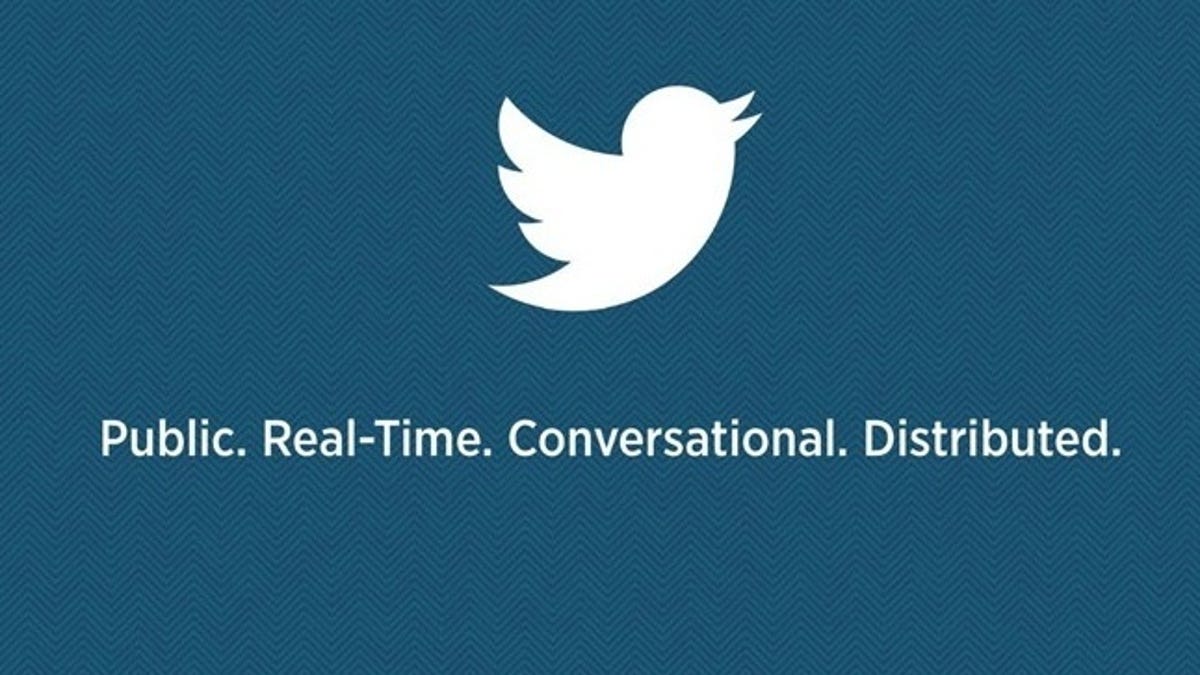Why Twitter gets a pass -- even without a sign of profits
Public. Real-time. Conversational. Distributed. The staccato pitch has a very rich ring to investors.

Wall Street handed Twitter a $25 billion valuation on its first day of trading today. Now, let's talk about the encore.
Twitter made its public market debut at $45.10 for an instantaneous 75 percent jump in market value over where it priced its shares on Wednesday evening. The sharp run-up in share price was yet the latest example of Wall Street being willing to give Twitter's nascent advertising business the benefit of the doubt. After all, Twitter remains a company that's still not generating profits.
That the 7-year-old social network lost $133 million during the first nine months of 2013 is a fact investors just brushed aside. But Wall Street is gambling that the speed and quality of information following through 140-characters of text, photos, and videos will eventually pay off. Some of the thinking is that, like Facebook, Twitter will be able to figure out how to increase both scale and user engagement -- and figure out how to make more money as those numbers climb.
"Twitter has a very well-known and recognizable brand. Their impact on people around the world ... has been pretty profound. That alone is hard for any single company to achieve," Gartner research director Brian Blau told CNET. "It almost seems like [investors] are going to give Twitter a break -- at least for the first quarter."
But despite Twitter's notoriety as a pop phenom, Twitter still faces myriad questions. Whether it can deliver on the high expectations raised by its stunningly successful IPO goes to the heart of the debate about its prospects.
For now, Wall Street's initial assessment is just a hypothesis based around the potential of Twitter's advertising business and its nexus to pop culture, particularly through television and its network-friendly Amplify program. The Amplify initiative lets advertisers like the NFL carefully time and promote special video clips, related to live events and targeted to audiences on Twitter, with attached ads that both Twitter and its partners profit from.
There's already evidence to suggest that the program is working for the parties involved. CBS, CNET's parent company, just plugged Amplify in a way that will surely get the attention of other media companies.
"Our live events are increasingly getting a lift from social media, which is proving to be a powerful complementary platform for us. And thanks to new deals like our Amplify initiative with Twitter, we're not only benefiting promotionally, but we're now beginning to monetize clips of these events as well," CBS CEO Leslie Moonves told his investors Wednesday after the company's earnings report.
The statement is a testament to Twitter's ability to win over top-tier advertisers and its potential to profit from its real-time nature, which has been an uncertainty for the past 7 years.
"There's significance that Twitter is exploring their options and that the TV networks and the video providers are willing to go with them into the experiment," Forrester analyst Nate Elliott told CNET. "That's a good sign."
Elliott, the same analyst who recently criticized Facebook's marketing business, distinguishes Twitter's advertising business from the larger social network's in terms of its prospective appeal. Twitter's business, he said, is still quite young, which means marketers who have become disillusioned by Facebook have yet to be completely turned off by Twitter.
"On Facebook, [marketers] feel like they, as an industry, have given Facebook billions and billions of dollars and they're not getting value from it yet," Elliott said. They've given [Facebook] a chance and have been let down. Whereas on Twitter, that's not true yet."
In other words, Twitter's lack of business maturity is actually a good thing. Though Elliott would also argue that Twitter has taken a more meticulous, marketer-friendly approach to incorporating ads than Facebook.
"Facebook has abandoned social marketing," Elliott said, in that the company only delivers a brand's messages to an average of 16 percent of fans who have liked the brand's Page.
Facebook's weakness is Twitter's opportunity. If the smaller social network can give marketers want they want, and genuinely connect brands with their audiences, then it will win over ad dollars.
RBC Capital Markets analyst Mark Mahaney echoed the sentiment that not all social networks are created equally in the eyes of advertisers in his Twitter note, published Wednesday evening. "We believe that Twitter's user base may be particularly well-suited to commercial purposes," he wrote. "What's more, we see the possibility for additional advertising opportunities that position Twitter as a companion to live TV broadcasts."
Now Twitter's staccato prospectus pitch -- "Live. Real-Time. Conversational. Distributed." -- makes all the more sense. Like any dutiful follower, Wall Street is favoriting and retweeting the message.

